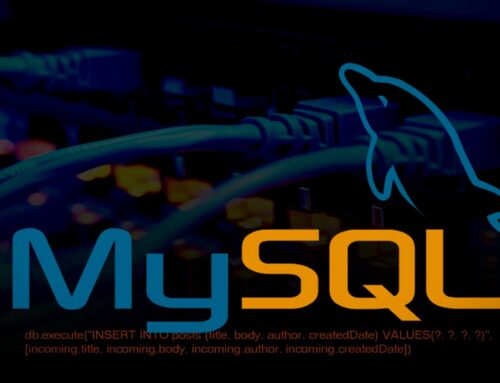The business environment for small businesses in 2023 is ever-evolving. As a small business owner, understanding these trends can be vital in positioning your business for success. This article offers a comprehensive overview of the significant industry trends in finance, marketing, and technology and provides crucial insights into the state of small businesses in 2023.
Trends for Small Business for 2023
Table of Contents
- Small Business Finance Trends
- Small Business Marketing Trends
- Small Business Tech Trends
- State of Small Business in 2023
- Frequently Asked Questions
- Final Thoughts
- Sources
Small Business Finance Trends
The finance sector is noticing some shifts, particularly in how businesses source funding. Given the fluctuating interest rates, many small businesses are exploring alternative sources of capital, especially when traditional loans are inaccessible. These alternative sources include grants, fintech, venture capital, angel investors, peer-to-peer lending, and crowdfunding. As Courtney Lawless, a venture capitalist, mentions, many businesses that need capital might not meet traditional funding sources’ requirements. Thus, these alternative means become indispensable.
Additionally, rising interest rates, which are expected to persist into 2023, could potentially curb economic growth or even usher in a recession. With borrowing costs for businesses and their customers increasing, small businesses may re-evaluate their investment and borrowing strategies.
Small Business Marketing Trends
Marketing for small businesses in 2023 is gravitating more towards digital platforms. The major trends observed include:
- Increased Social Media Spending: With social media platforms boasting billions of users, there’s a forecasted growth from 55% to 57% in the global ad spend on these platforms in 2023. However, competition in this space is also increasing. Hence, small businesses are encouraged to pursue multichannel organic approaches over competitive ad spending.
- Leveraging User-generated Content (UGC): Amid market uncertainties, UGC has become a valuable asset. As Zarnaz Arlia states, “Authenticity is what modern consumers are craving.” Brands can harness the power of UGC by promoting branded hashtags, exciting offers, and contests.
- Entertainment as a Marketing Tool: Businesses are exploring ways to make shopping experiences more entertaining. Technologies like hologram displays, which could potentially attract foot traffic, are on the rise.
Small Business Tech Trends
The tech landscape for small businesses in 2023 is poised for significant transformations. Generative AI, which refers to software generating creative work like text, music, or images, is at the forefront. Businesses can expect a surge in tools like ChatGPT and AI art generators that promise revolutionary operational strategies. Another prevailing trend is the rising importance of automation powered by AI.
1. Generative AI Disrupts Business Operations
Generative Artificial Intelligence (AI) is a game-changer. At its core, it is software that can produce creative content – from text and music to images – based on a brief input or description. Generative AI is making waves across several industries, and its applications in the business realm are enormous:
- Marketing: Imagine an AI that can write compelling marketing material tailored to your target audience.
- Customer Support: Generative AI can be used to handle routine customer support inquiries, providing accurate and instantaneous responses.
- Product Design: AIs can also contribute to product design, brainstorming, and innovation by generating numerous iterations in a fraction of the time a human team would take.
Generative tools like ChatGPT and AI art generators have become more mainstream, democratizing access to advanced AI capabilities. This is the first time since voice assistants, like Alexa and Siri, that AI is becoming a widespread consumer phenomenon. With large investments pouring into the field, small businesses can expect an increasing array of AI tools that can revolutionize their daily operations.
2. Emphasis on Automation
2023 has seen a heightened emphasis on automation, particularly those powered by AI. Automation isn’t just about replacing manual tasks but making operations more efficient, reducing errors, and freeing up human resources for more strategic roles.
Here are a few areas where automation has been particularly impactful for small businesses:
- Inventory Management: Automated systems can predict when stock is running low and automatically reorder, minimizing stockouts and overstock situations.
- Customer Relationship Management (CRM): Automated CRM systems can track customer interactions, predict future buying behaviors, and even automate communications to keep customers engaged.
- Bookkeeping: Automation tools are simplifying accounting and finance, reducing human errors, and offering real-time financial insights.
State of Small Business in 2023
Guidant’s report provides a detailed picture of the state of small businesses:
- Reasons for Starting a Business: Most business owners were driven by the desire to be their own boss (28%) and dissatisfaction with corporate America (23%). Some were motivated by pursuing passions (13%), while others were driven by life events or newfound opportunities.
- Generation Gap: There has been a 6% increase in Millennial business owners, while Baby Boomer business owners have seen a slight decrease.
- Diversity in Business: Men still dominate the small business landscape, accounting for 75% of small business owners. However, the diversity gap is narrowing with 25% of women as small business owners.
- Political Affiliations: A shift from traditional major political parties has been noticed among small business owners, with a rise in those identifying as Libertarians.
- Education: A majority of business owners have either a bachelor’s or master’s degree.
Frequently Asked Questions
Final Thoughts
Understanding these trends is crucial for small businesses in 2023. The financing landscape is diversifying with alternative funding sources becoming crucial. Digital marketing, especially through social media and UGC, is becoming pivotal. Moreover, embracing technological trends like generative AI can position a business for success. Keeping in touch with the broader socio-economic landscape, as reflected in the state of small businesses, is also essential for making informed decisions.











Leave A Comment